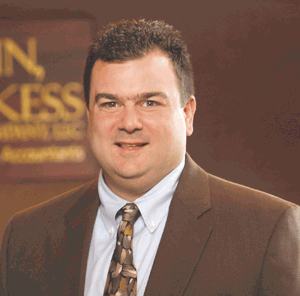
What Bonding Companies Find Important
You Don’t Need a Crystal Ball to Figure Out What They’re Thinking
Construction companies need the support of their bonding company to sustain the growth of their business. As a result of the current economic realities of the construction industry, bonding companies are spending more time scrutinizing the viability of their clients’ financial future and operations before issuing a bond.Here are the 10 topics you need to be prepared to address the next time you sit down with your surety agent.
1. Banking covenants. Bonding companies want to know that you are satisfying the covenants as outlined in your loan or line of credit documents. If you’re not meeting the covenants, you need to talk to your banker about rewriting the covenants or developing a strategy for meeting them. Bonding companies get concerned when they see that construction companies are not meeting their banking covenants.
In fact, this could result in an immediate end to a line of credit or an immediate call for repayment of a loan. Needless to say, without access to financing, some construction companies couldn’t afford to complete their work in progress. In the end, bonding companies want to see a positive working relationship with your lending institution.
2. Accounts receivable. Your accounts-receivable aging report will be examined throughout the year. What are bonding companies looking for? They want to make sure that you’re being paid for your work, and you have business systems, policies, and procedures in place to track and encourage timely payments. Before starting work for a customer, perform enough due diligence that would lead you and your bonding company to believe you’ll get paid for your work.
3. Accounts payable. Pay your bills in a timely fashion. Bonding companies assume that, if you’re not paying your bills in a timely fashion, you either don’t have the resources to do so, or you have weak internal business systems. Either way, that’s bad news.
4. Backlog. In construction, it’s all about the backlog. Really, whether you are an accounting firm, law office, or a construction company, a backlog of work secures the future of your business. The longer the backlog, the more confidence bonding companies will have in your business, and the more likely they are to insure the completion of your work. Keep in mind that bonding companies will look at more than the total number of jobs backlogged; they’ll look for the number of profitable jobs.
5. Strategic business plan. We all get distracted by today’s challenges, but taking the time to write a strategic business plan is good for the future of your business. And that’s just what bonding companies are concerned about — the future of your business. What are your short-term, mid-range and long-term goals, and what is your strategy for achieving them? Write them down. A good strategic business plan includes timelines and benchmarks to measure progress. If your bonding company comes in for a visit and asks to see your strategic business plan, be ready to share a thoroughly prepared document.
6. Profitable and cost-controlled work. Your bonding company wants to know that your jobs are profitable and that costs can be controlled as shifts in the market demand. So be prepared to show how you plan to profit from your work and control costs. In addition, if market conditions change, you need to have a plan in place to adjust. Take a proactive approach to challenges by implementing smart solutions on a timely basis.
7. Equipment. Equipment represents a major investment for most construction companies. The patterns of acquisition and disposition of equipment tell the bonding company a story. Be ready to discuss the reasons why you are either acquiring or disposing of equipment. If you’re stuck supporting debt for idle equipment, there may be creative ideas you could explore to turn idle equipment into a revenue source. Discuss strategies like this with your surety agent.
8. Loans from owners. As an owner of any business, when times are tough, you may have to loan your company money to help it through a temporarily challenging time. Don’t be surprised if loans you make to your company get subordinated to other obligations of the company and require approval from your surety before you get paid back. As an aside, be sure to consult with your accountant and attorney before loaning money to your company; there may be tax benefits or implications that deserve additional discussion.
9. Indemnity. Personal and spousal indemnity is becoming commonplace, especially if your surety agent considers a particular job to be a stretch for your company. Your bonding company sees more risk associated when you do work outside of your areas of expertise. With additional risk comes additional indemnity. If this sounds like you, be prepared to discuss why your company can meet its obligations even outside its areas of expertise.
10. Unexpected taxes. If your construction company (structured as a C-corporation) has adopted the completed contract basis of accounting for tax purposes, you may not be in a position to defer taxes to next year without a sizeable backlog. As backlogs at some construction companies aren’t so large, this could mean that those deferred taxes are payable now. Unanticipated, this could place significant strain on cash flow. Even if your deferred tax is at the individual level, as is the case with a flow-through entity, be prepared to discuss this issue with your surety agent.
Surety agents can be supportive in helping you grow your construction business. That being said, in higher-risk environments, they’ll need additional and more detailed information about you and your business.
Take a proactive approach in developing a positive working relationship with your surety agent. Get together throughout the year. Share your success stories and your challenges. Tell your surety agent what your company is doing to improve business processes and procedures, and what strategies you’ve put into place to control costs and become more profitable. When you and your surety agent are on the same page, that’s good for business.
Joseph Spagnoletti, CPA, CCIFP is partner in charge of the Construction Services Group at Kostin, Ruffkess & Co., LLC, a certified public-accounting and business-advisory firm with offices in Springfield as well as Farmington and New London, Conn. Beyond traditional accounting, auditing, and tax consulting, the firm also specializes in employee benefit-plan audits, litigation support, business valuation, succession-planning business consulting, forensic accounting, wealth management, estate planning, fraud prevention, and information technology assurance; www.kostin.com.






